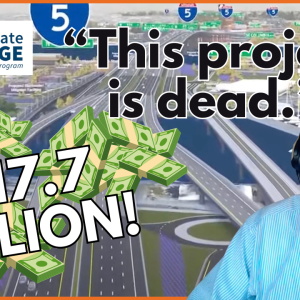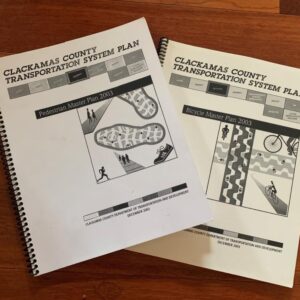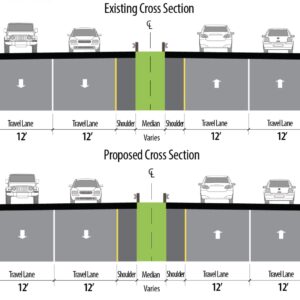Joe Cortright, an economist with Impresa Inc. and a noted critic of the Columbia River Crossing project, sent the letter below to the Clackamas County Board of Commissioners before their vote today on an anti CRC resolution:
Today, the Clackamas County Board of Commissioners is considering a resolution to oppose the Columbia River Crossing. Attached is a copy of testimony I prepared for this meeting. Here is a quick summary:
The overly optimistic assumptions underlying the CRC finance plan, and the high probability of cost overruns mean that the Columbia River Crossing is likely to greatly reduce the ability of the State of Oregon to fund other transportation projects over the next decade.
– CRC traffic and toll forecasts, based on outdated data, and models that ODOT admits can’t accurately forecast traffic on tolled facilities, grossly over-estimate I-5 traffic and associated toll revenues. Shortfalls in toll revenues on the project will have to be made up from state highway funds. CRC sponsor WSDOT cut its estimate of toll revenues for the Alaska Way Viaduct tunnel project in half–after it signed construction contracts.
-CRC failed to get the $400 to $500 million earmark it was counting on in the federal highway re-authorization bill. Again, this shortfall would have to be made up by state highway funds. Because virtually all federal highway money is now allocated by formula, building the CRC will not bring additional revenue to Oregon, but instead will consume revenue that could be used for other projects throughout the state.
-CRC has no guarantee of receiving the full $850 million cost of the light rail portion of the project from the Federal Transit Administration (FTA). FTA usually only funds half of the cost of such projects. This shortfall would have to be made up from sources other state state highway funds or tolls–which in Oregon cannot be used for transit.
-ODOT has routinely experienced 200 percent cost overruns on its largest projects. The current Highway 20 Pioneer Mountain-Eddyville project was originally supposed to cost $110, but is years behind schedule and is now estimated to cost nearly $400 million. Globally, highway megaprojects like CRC average 30 percent cost overruns.
-ODOT’s financial situation has deteriorated significantly in the past decade, it now spends nearly 30 percent of its revenue on debt service, up from 1.5 percent in 2002. And the agency has significantly over-estimated its revenue, and is already having to dramatically cut its capital spending.
-Two bills currently before the Oregon Legislature (HB 2260 and HB 2800), authorize effectively unlimited amounts of debt for the CRC, but provide no new revenue repay these bonds. Instead, they provide that bonds would be repaid from future gas tax revenues and federal grants coming to Oregon, which would reduce the availability of money for other projects around the state.
Proceeding with the CRC under these circumstances is likely to jeopardize the financial health of the Oregon transportation system, and reduce funding available for other highway projects in Oregon for the next decade or more.







Thanks for reading.
BikePortland has served this community with independent community journalism since 2005. We rely on subscriptions from readers like you to survive. Your financial support is vital in keeping this valuable resource alive and well.
Please subscribe today to strengthen and expand our work.
And we wonder why some folks don’t like our politicians or the system of which they are a part. Thanks, Joe, for putting it so succinctly. How did we ever get to this point? Why are all the thoughtful people who can do math not working at ODOT or serving in the legislature?